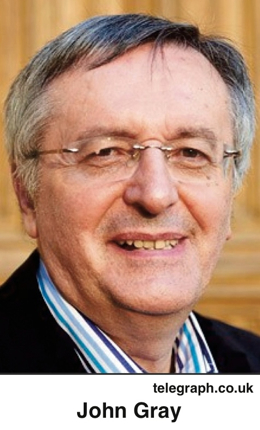Rascals case in brief
In the beginning, in 1989, more than 90 children at the Little Rascals Day Care Center in Edenton, North Carolina, accused a total of 20 adults with 429 instances of sexual abuse over a three-year period. It may have all begun with one parent’s complaint about punishment given her child.
Among the alleged perpetrators: the sheriff and mayor. But prosecutors would charge only Robin Byrum, Darlene Harris, Elizabeth “Betsy” Kelly, Robert “Bob” Kelly, Willard Scott Privott, Shelley Stone and Dawn Wilson – the Edenton 7.
Along with sodomy and beatings, allegations included a baby killed with a handgun, a child being hung upside down from a tree and being set on fire and countless other fantastic incidents involving spaceships, hot air balloons, pirate ships and trained sharks.
By the time prosecutors dropped the last charges in 1997, Little Rascals had become North Carolina’s longest and most costly criminal trial. Prosecutors kept defendants jailed in hopes at least one would turn against their supposed co-conspirators. Remarkably, none did. Another shameful record: Five defendants had to wait longer to face their accusers in court than anyone else in North Carolina history.
Between 1991 and 1997, Ofra Bikel produced three extraordinary episodes on the Little Rascals case for the PBS series “Frontline.” Although “Innocence Lost” did not deter prosecutors, it exposed their tactics and fostered nationwide skepticism and dismay.
With each passing year, the absurdity of the Little Rascals charges has become more obvious. But no admission of error has ever come from prosecutors, police, interviewers or parents. This site is devoted to the issues raised by this case.
On Facebook
Click for earlier Facebook posts archived on this site
Click to go to
Today’s random selection from the Little Rascals Day Care archives….
Click for earlier Facebook posts archived on this site
Click to go to
Today’s random selection from the Little Rascals Day Care archives….
‘Satan’ issue was 100% baloney – but so what?
Dec. 5, 2012
As noted previously, my requests for retraction to Nursing Research and Child Abuse & Neglect went nowhere. But I found a spark of interest at a third journal, Relational Child & Youth Care Practice.
As well I should have – in 1990, RCYCP (then known as the Journal of Child and Youth Care) published not just a single article affirming the existence of day-care ritual abuse but an entire special issue.
“In the Shadow of Satan: The Ritual Abuse of Children” included “A Case of Multiple Life-Threatening Illnesses Related to Early Ritual Abuse” by Rennet Wong and Jock McKeen, “Ritual Child Abuse: A Survey of Symptoms and Allegations” by Pamela S. Hudson and “Satanic Ritual Abuse: A Cause of Multiple Personality Disorder” by George A. Fraser.
My request for retraction elicited this response from RCYCP:
“…. Carol Stuart and Grant Charles, Editors of RCYCP… have agreed that a statement in the next issue about the original article and the wrongful prosecution of these defendants would be appropriate. Could you please provide… a draft of what you think is appropriate, ensuring correct names, etc. Our editors will then review and finalize and confirm any questions or issues with you.”
Boy, was I excited! This is what I proposed:
“In 1990 the Journal of Child and Youth Care (now Relational Child & Youth Care Practice) published a Special Issue entitled ‘In the Shadow of Satan: The Ritual Abuse of Children.’
“All five articles in the issue were based on the writers’ erroneous belief in ‘satanic ritual abuse,’ a moral panic that led to wrongful prosecutions against day cares in the United States, Canada and elsewhere during the 1980s and 1990s.”
A few days later I received this change of plan from RCYCP:
“We have carefully reviewed the 1990 Special Issue… and found no reference to the Edenton Seven or the Little Rascals Day Care. As such, our editors will not be printing a retraction.”
Of course, I responded:
“The Little Rascals and McMartin cases were but two manifestations of the moral panic of satanic ritual abuse. In the 1980s and early 1990s, numerous similar, if less publicized, prosecutions occurred across North America and as far as New Zealand and Germany.
“All these cases were rooted in the belief affirmed and promoted in the Special Issue….
“Little Rascals and McMartin are mentioned only indirectly, but my request for a retraction addresses – as does the issue – the entire false concept of satanic ritual abuse.
“I hope this clarification will move the editors to reconsider.”
So far, it hasn’t.
Oh, for the ability to recognize something ‘odd’
 June 25, 2012
June 25, 2012
“I saw this woman in her 20s … accused of something like 2,800 charges of child sex abuse. Oh, I thought, well, that’s very odd….
“I thought, How can (Kelly Michaels) one woman, one young, lone woman in an absolutely open place like the child care center of the church in New Jersey that she worked for – how could she have committed these enormous crimes against 20 children, dressed and undressed them and sent – you know what it is to dress and undress even one child every day without getting their socks lost? – 20 children in a perfectly public place, torture them for two years, frighten and terrorize them, and they never went home and told their parents anything?… This did seem strange.”
– Dorothy Rabinowitz, recalling on C-SPAN the 1985 case that led to her Pulitzer-winning coverage of the ritual-abuse day-care mania
“This did seem strange.”
From the vantage of 2012, of course, such allegations seem not only “strange” but also patently incredible.
So why didn’t everybody – therapists, journalists, prosecutors, jurors – share Rabinowitz’s reasonable doubt?
How did such a grotesque misconception flourish?
Had skepticism really fallen that far out of fashion during the “Believe the Children” zeitgeist?
Did replay of Salem prove human progress is ‘myth’?
 April 5, 2014
April 5, 2014
“Outside of science, progress is simply a myth.… In science the growth of knowledge is cumulative. But human life as a whole is not a cumulative activity; what is gained in one generation may be lost in the next.”
– From “Straw Dogs: Thoughts on Humans and Other Animals” (2002) by John Gray, British political philosopher
An arguable proposition, certainly – but how else to explain the widespread acceptance of day-care ritual-abuse claims 300 years after the Salem Witch Trials? As noted by sociologist David G. Bromley, this chronic failure to learn-and-remember makes inevitable yet more moral panics – whatever their specifics.
And how else to explain this just-published revisionist history?
An expertise ‘contrary to science and common sense’
 March 7, 2013
March 7, 2013
Anthony Oberschall’s “Why False Beliefs Prevail: the Little Rascals Child Sex Abuse Prosecutions” appeared in “Essays in Honor of Raymond Boudon” (2000).
Most saliently, the UNC sociologist argues that “hysteria” and “moral panic” are inadequate to describe what happened in Edenton. Rather, he sees the town – and the Little Rascals defendants – as victims of the purveyors of “pseudoscience”:
“When child sexual abuse became a national issue, the medical profession, academic psychology and social science were just starting to study it scientifically…. The legal profession lacked experience with trial testimony of pre-schoolers and admission of hearsay testimony by parents and therapists….Meanwhile thousands of child sex abuse allegations had to be dealt with.
“In the absence of proven knowledge, a child sex abuse industry of self-appointed ‘experts’ based on pseudo-science filled the demand for training and informing child protection service workers, social workers, police investigators, prosecutors, therapists and others…. They were convinced they were saving America’s children, even though their methods and knowledge were contrary to science and to common sense. In Edenton, the prosecution and the investigators relentlessly labored to supplant common sense with false beliefs based on pseudo-science, (and) they succeeded….”
Working with UNC journalism student David Loomis on his master’s thesis detailing news coverage of the case, Oberschall “tried to survey Edenton households by mail (picked names at random from a phone book), but got less than a 10 percent return rate. It was obvious people there didn’t want anything to do with an outsider, a scholar.”
Rebuffed, Oberschall drove to Edenton himself and conducted perhaps a dozen interviews, which he made use of both in “Why False Beliefs Prevail” and in this more detailed draft working paper from 2010.











0 CommentsComment on Facebook